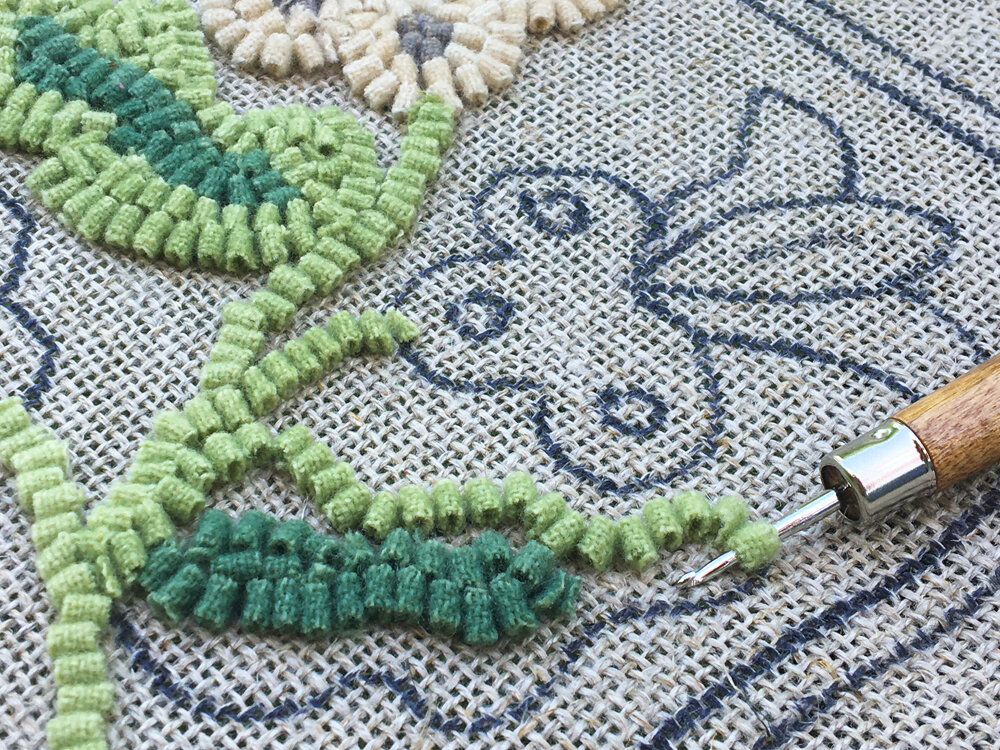Meet Rug Hooking: What You Need to Get Started

Note: I am a hobbyist who loves arts and crafts! I wrote this post as a brief intro for fellow novices - if you’re intrigued, I encourage you to dig deeper! My sources are listed here to help you get started.
Now that we know a little bit about the history of rug hooking, let’s have a look-see at its most common styles, plus the tools and materials you need to get started!
5 Styles of Rug Hooking
Although there are as many styles of rug hooking as there are artists, you’ll find that most designs fit into one of FIVE primary style categories:
PRIMITIVE - Uses wider strips of material for simple, childlike patterns
REALISTIC - Uses narrower, custom dyed material for a more life-like result
PICTORIAL - Think landscapes and scenes, using a variety of widths and materials
ABSTRACT/GEOMETRIC - Designs made up of shapes and patterns
WALDOBORO - Named for the originators of the style in Waldoboro, Maine, this style involves cutting and sculpting the loops, after hooking on a wool backing, for dimensional effect
I highly recommend this pamphlet from PE, Canada for photo samples and details. See which style resonates with you! Then look for a pattern or kit in that style (or go maverick on us, and come up with your own!) to kick off your rug hooking adventure!
Rug Hooking Starter Tools & Materials
What you need to get started is a whole lotta not much! It’s one of the reasons the craft is so inclusive, so enticing, and so much fun!
Rug hook tool - You can even start with a simple crochet hook!
Hoop or Frame - Embroidery hoops, lap frames, and gripper frames are all options
Scissors - Bent handle is nifty, but regular scissors work just fine
Textile of choice - Wool, fabric, yarn, etc.
Backing fabric - Linen, monk’s cloth, burlap, rug warp, etc.
Pattern - Or make up your own!
Optional extras:
Sewing machine - For surging backing edges to prevent fraying
Wool or rotary cutter - For more easily creating your fabric strips
Steam iron - For finishing your piece
Dye materials - For customizing fabric
Be sure to tune in next blog for common rug hooking mistakes you can totally avoid!
I am a recovering CEO, reconnecting with my love of arts and crafts. My mission is to educate and inspire fellow creative explorers who, like me, want to try it all!














